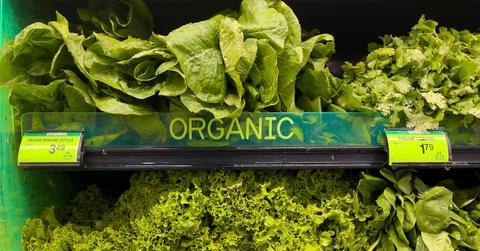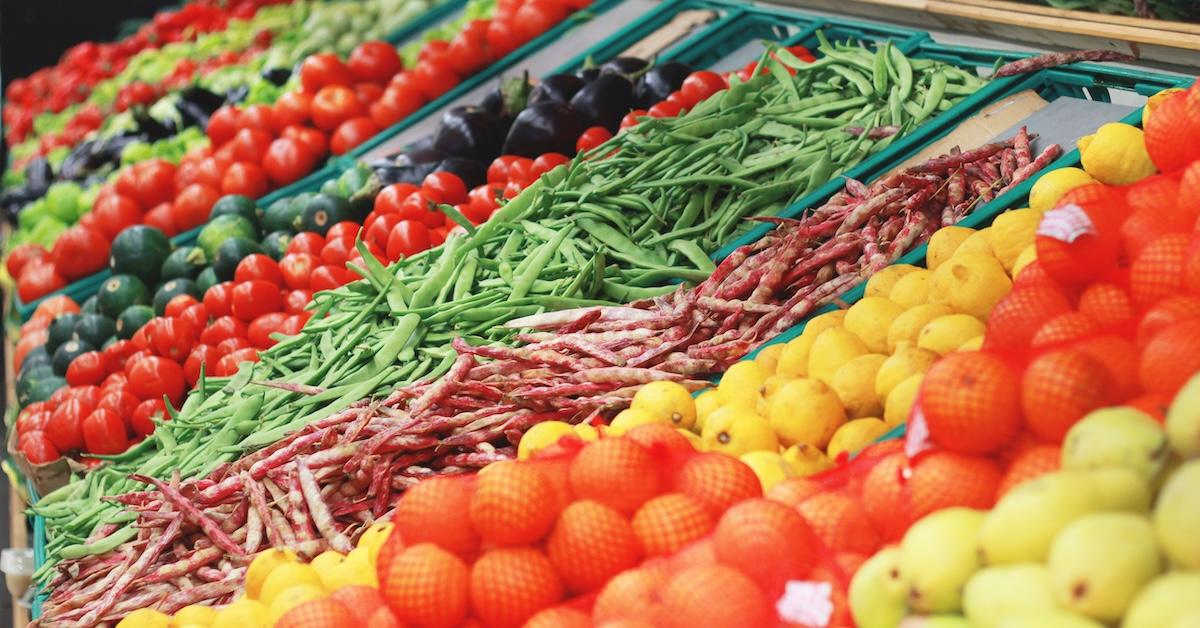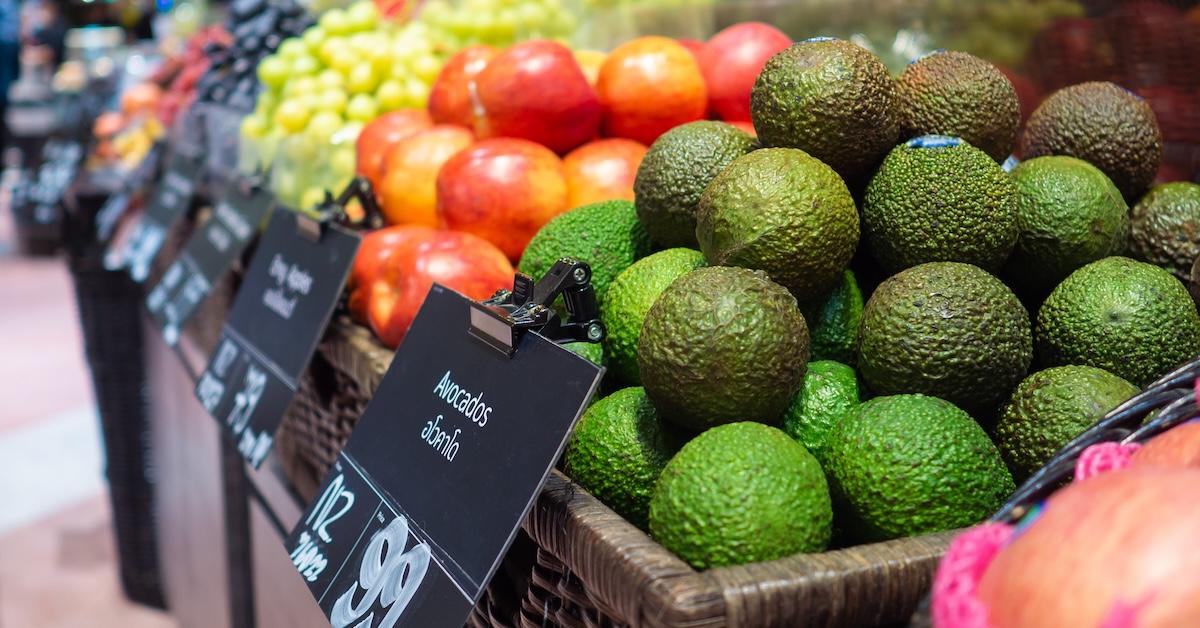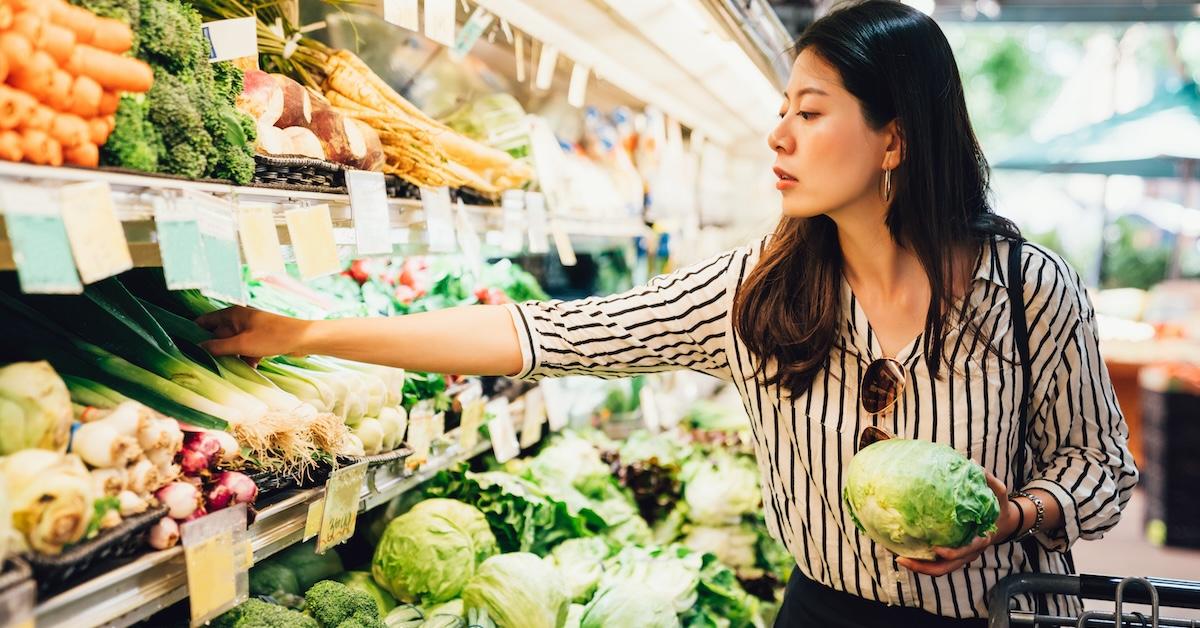The 2024 Dirty Dozen and Clean 15 Just Dropped: What Produce to Buy Organic (Exclusive)
Here's what fruits and veggies you should be buying organic in 2024.
Published March 20 2024, 12:01 a.m. ET

Every spring, the Environmental Working Group (EWG) puts out an updated version of its Shopper's Guide to Pesticides in Produce, which aims to help U.S. consumers eat more fruits and vegetables, save money, and reduce their pesticide exposure.
The guide is composed of two lists: the Dirty Dozen, a group of 12 produce items the EWG recommends buying organic; and the Clean Fifteen, a group of 15 produce items that are safest to buy conventionally. (Conventional produce is grown with pesticides, while organic produce is grown without pesticides.)
For the 2024 guide, published on March 20, 2024, the EWG is focusing on educating consumers on fungicides, which represented four of the five most frequently detected chemicals in this year’s report.
To learn more about this year’s findings, we exclusively spoke with EWG Senior Toxicologist Alexis Temkin, Ph.D. in advance of the 2024 Dirty Dozen and Clean Fifteen going public. Read on to see this year’s two lists in full, and for Temkin’s commentary on the 2024 findings.

The 2024 Dirty Dozen: The EWG recommends buying organic versions of these fruits and veggies.
The Dirty Dozen represents the 12 fruits and vegetables that had the highest pesticide levels, according to recent tests conducted by the U.S. Department of Agriculture (USDA).
The tests analyzed more than 47,000 samples of 46 different produce items — all of which were washed (after being either peeled or scrubbed) before being tested. The USDA detected 254 different pesticides in that sample, 209 of which were found on Dirty Dozen produce.
Additionally, Temkin tells Green Matters that 75 percent of the conventional produce analyzed this year had detectable pesticide residues — and of the 12 items in the Dirty Dozen, 95 percent of the samples tested detectable pesticide residues.
The foods on this list were found to have the highest concentrations of pesticides, and for that reason, the EWG encourages consumers to buy organic versions of these items when possible.
Here is the 2024 Dirty Dozen:
- Strawberries
- Spinach
- Kale, collard, and mustard greens
- Grapes
- Peaches
- Pears
- Nectarines
- Apples
- Bell and hot peppers
- Cherries
- Blueberries
- Green beans
If you subscribed to last year’s Dirty Dozen, you’ll notice that this list is almost identical. (The only change is that grapes moved up from No. 8 to No. 4, which means they had slightly more pesticide residue this year.)
Why is this the case? As Temkin tells Green Matters, the USDA’s “sampling usually spans two years for each item.” In 2023, two new items (green beans and blueberries) were added to the Dirty Dozen, so in 2025, there could be new data that causes major changes to the list again.

EWG Senior Toxicologist Alexis Temkin, Ph.D.
The EWG’s 2024 report aims to highlight the health issues with fungicides.
“One of the things we did [this year was] dig into the data in terms of what pesticides were found on the Dirty Dozen produce,” Temkin tells Green Matters. And of the five most frequently found pesticides, four were fungicides — specifically, boscalid, fludioxonil, pyraclostrobin, and pyrimethanil.
Fungicides are a type of pesticide that specifically work to prevent and kill fungi from growing near crops, as fungal growth can cause plant diseases.
Temkin notes that even though fungicides are “not the most well studied pesticides,” research does point to some “particularly concerning potential health effects,” such as hormone disruption. She notes that studies have connected these specific fungicides to potentially harming the male reproductive system, and increasing the spread of breast cancer cells.
“These studies need to be confirmed, but it's the type of evidence that makes you say, ‘OK, maybe we need to take a closer look at exposure to these pesticides,’” Temkin says.
Additionally, fungicides can harm the environment and wildlife. One 2017 study of amphibians found that exposure to the fungicide pyrimethanil harmed various vital organs.

The 2024 Clean Fifteen: The EWG says these 15 produce items are the safest to buy conventional.
On the other end of the spectrum from the Dirty Dozen, the Clean Fifteen indicates the 15 fruits and veggies with the smallest amount of pesticide residues. And so, the EWG recommends buying either conventional or organic versions of these items. Conventional produce is usually more accessible and affordable than organic produce.
Here is the 2024 Clean Fifteen:
- Avocados
- Sweet corn
- Pineapple
- Onions
- Papaya
- Sweet peas (frozen)
- Asparagus
- Honeydew melon
- Kiwi
- Cabbage
- Watermelon
- Mushrooms
- Mangoes
- Sweet potatoes
- Carrots
Just like with the Dirty Dozen, the Clean Fifteen only had one change from 2023 to 2024: watermelons moved up from No. 14 to No. 11, meaning they had even less pesticide residue than last year.
The EWG notes that although sweet corn and papaya are on the Clean Fifteen, some consumers may still opt to buy organic versions of them. That’s because genetically modified varieties of these two crops are sold in the U.S., and any food with an organic label is automatically non-GMO.

The EWG encourages consumers to eat plenty of fruits and vegetables, even if they aren’t organic.
“The way to use this guide is the combination of the Dirty Dozen and the Clean Fifteen together, as a way to really effectively get fruits and vegetables into your diet while reducing potential exposure to pesticides,” Temkin tells us.
And overall, the message of this report is the same every year: eat a diet filled with varied fruits and veggies, whether or not they are organic.
“The major point is definitely keep eating fruits and vegetables — and probably eat more fruits and vegetables,” Temkin told us in 2023. “It's really important to have fruits and vegetables in your diet regardless of if they're conventional or organic.”
And as former EWG toxicologist Thomas Galligan told Green Matters in 2021, “eating fruits and vegetables outweighs the risks of consuming pesticides,” so if you aren’t able to find organic versions of the items on the Dirty Dozen, don’t be afraid to consume them.